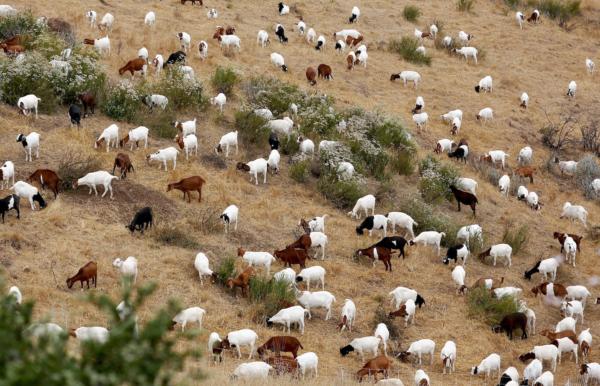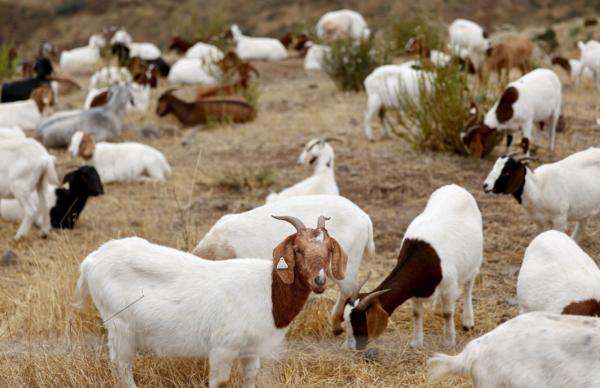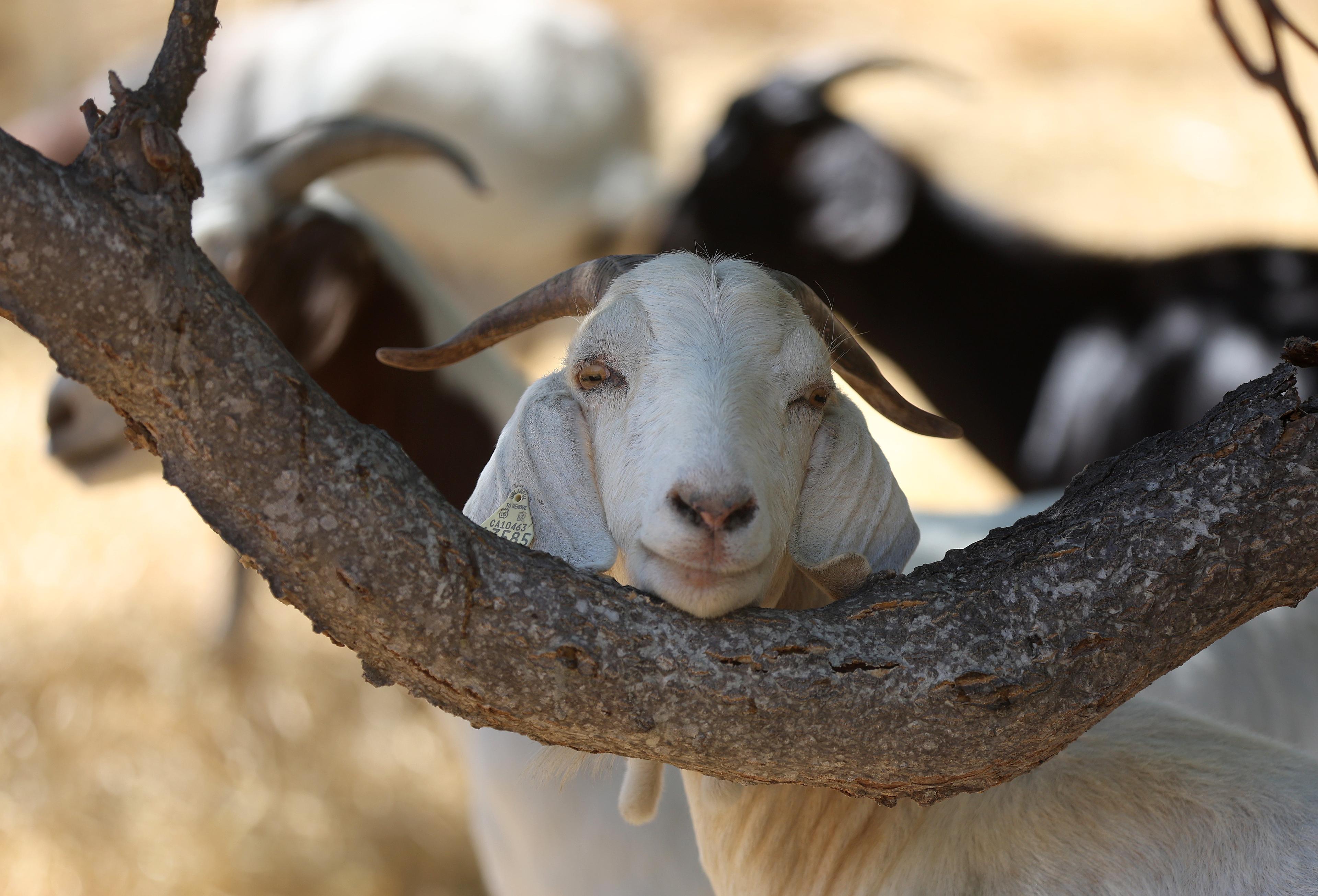A handful of California’s goat herding companies hope the state will provide the industry another 2.5 years to continue paying workers to help reduce the risk of wildfires across the state.
The state Legislature is considering a budget trailer bill—Assembly Bill 143—which would extend the state’s special $3.79 per hour minimum wage—called an alternative or agricultural minimum wage—based on a 24-hour day for sheep and goat herders until Jan. 1, 2026.
The state is home to a dozen or more fire fuels abatement companies that use goats to munch overgrown vegetation as an eco-friendly way to reduce fire danger. They are mainly paid through funds from the California Department of Forestry for the work.
About 10 of the companies hired a lobbyist this year to help push the bill through the state Legislature.
California’s current minimum wage is $15.50 per hour. But such workers are singled out in state law to receive a much lower minimum hourly pay because they work around the clock.
Goat herders are usually included in this category to receive the lower minimum wage but were left out of last year’s budget trailer bill, which are bills that follow and make adjustments to the state’s budget bill. If passed by a majority of legislators they take effect immediately.
Consequently, the goat herding industry would be required to pay the state’s minimum wage beginning in January, meaning they would make about $180,000 per year, according to a budget analyst during an August hearing on the bill.

A herd of hundreds of goats graze on fire-prone brush on a hillside next to the Ronald Reagan Presidential Library as part of Ventura County wildfire prevention efforts in Simi Valley, Calif., on June 15, 2023. (Mario Tama/Getty Images)
Tim Arrowsmith, who owns Western Grazers in the Northern California city of Red Bluff, has about 4,000 goats for hire for government agencies and private landowners.
The workers he hires are mostly from Peru who have temporary agricultural work visas, which allows them to work up to three years.
Along with the $3.79 an hour in pay, companies must also provide housing, utilities and basic living necessities, including meals.
At that wage, the workers make just under $4,000 a month, and receive a monthly housing allowance, about $350 for groceries, clothing and raingear, and sometimes employer-paid vacation to visit family, according to Mr. Arrowsmith.
“It’s a very sought-after job,” he told The Epoch Times.
If the Legislature fails to pass the exemption this year, Mr. Arrowsmith said he would have to triple the wages, which would kill his business. Companies like his, he said, hold lengthy contracts with agencies that can’t be changed if wage costs rise.

A herd of hundreds of goats graze on fire-prone brush on a hillside next to the Ronald Reagan Presidential Library as part of Ventura County wildfire prevention efforts in Simi Valley, Calif., on June 15, 2023. (Mario Tama/Getty Images)
“We will be selling goats as fast as we can get rid of them and sending guys home,” he said.
In 2001, California decided to set a monthly minimum wage for sheep herders. Before that, the state did not regulate their pay. Legislation passed in 2016 also entitles the workers to overtime.
This year’s bill, AB 143, has passed the Assembly and is making its way through the Senate, recently passing the budget committee on an 11-3 vote, with four Senators abstaining.
Those that voted against the bill were senators Maria Elena Durazo, (D-Los Angeles), Talamantes Eggman, (D-Stockton), and Caroline Menjivar, (D-Panorama City).
Some senators said they were concerned about establishing a minimum wage below the state’s amount.
“When we’re talking about these agricultural workers, many of them are Peruvian,” said Sen. Lola Smallwood Cuevas, (D-Los Angeles), in a Senate Budget and Fiscal Review Committee hearing Aug. 30. “We know $3.79 [per hour] is not adequate. We still see a looming recession. We know that at any moment, as we move toward that precipice, these are the workers who are most impacted. They live in California. It’s anything but bucolic. It’s hard.”
The bill also includes a $1 million allocation to complete a study by Jan. 1, 2026 on the condition of sheep and goat herders in the state for future discussion.
The Senate is expected to vote on the bill next week.














